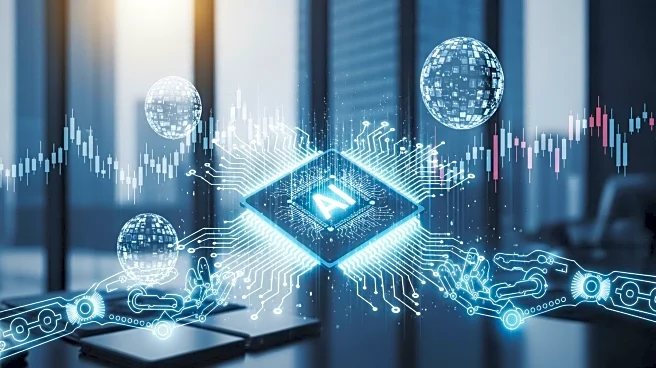What's Happening?
AI is increasingly being integrated into various business operations, transforming traditional cost centers into dynamic, digitally-driven systems. This shift is not merely a technological upgrade but a structural change in how businesses operate. Companies
like Procter & Gamble are utilizing AI-powered sensors to continuously monitor production quality, thereby reducing waste and freeing employees for higher-value tasks. The integration of AI is likened to the rise of the internet, where businesses initially made tentative adaptations but eventually embraced new models due to competitive pressures. AI is now seen as a competitive necessity, prompting businesses to plan multiyear transitions to new AI-enabled models.
Why It's Important?
The integration of AI into business operations is crucial as it offers new sources of productivity, especially in an era of labor shortages and scrutinized capital investments. AI's ability to automate low-value tasks and enhance decision-making processes can significantly improve efficiency and reduce costs. For example, AI-based HR systems can streamline hiring processes, while digital assistants can optimize meeting outcomes. This transformation allows businesses to focus on strategic growth and innovation, potentially leading to increased competitiveness and profitability. As AI continues to evolve, its role in reshaping industries and work processes will become increasingly significant.
What's Next?
Businesses are encouraged to plan their AI transitions now, focusing on areas where AI can outperform existing processes in terms of speed, cost, and efficiency. Companies should identify tasks that can be automated or augmented, aiming for significant cost reductions. The next two years will be critical for organizations to adapt to AI-enabled systems that offer clear advantages over current methods. As AI technology advances, businesses will need to continuously evaluate and integrate new AI capabilities to maintain competitiveness and drive growth.
Beyond the Headlines
The ethical implications of AI integration, such as potential biases in AI-based HR systems, require careful consideration and human oversight. Additionally, the shift towards AI-driven operations may lead to changes in workforce dynamics, necessitating new skills and roles. Long-term, AI could redefine industry standards and create new business models, impacting economic structures and societal norms.
















